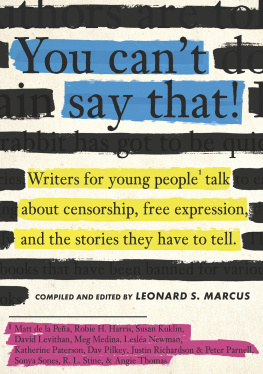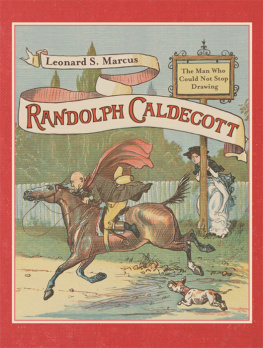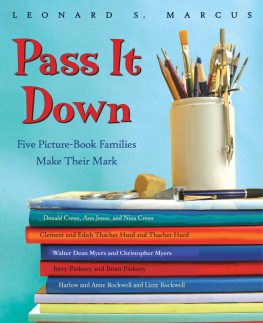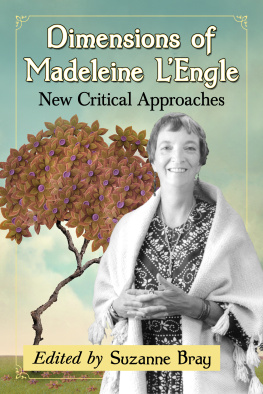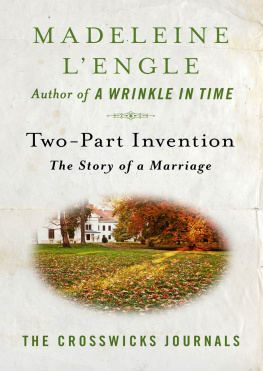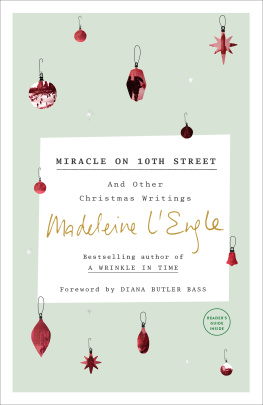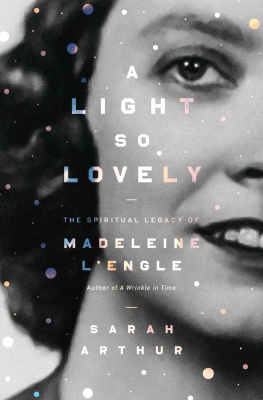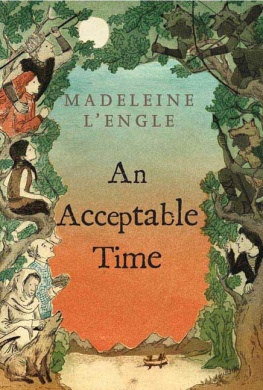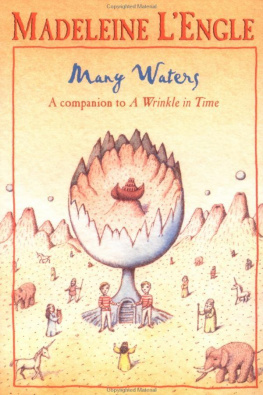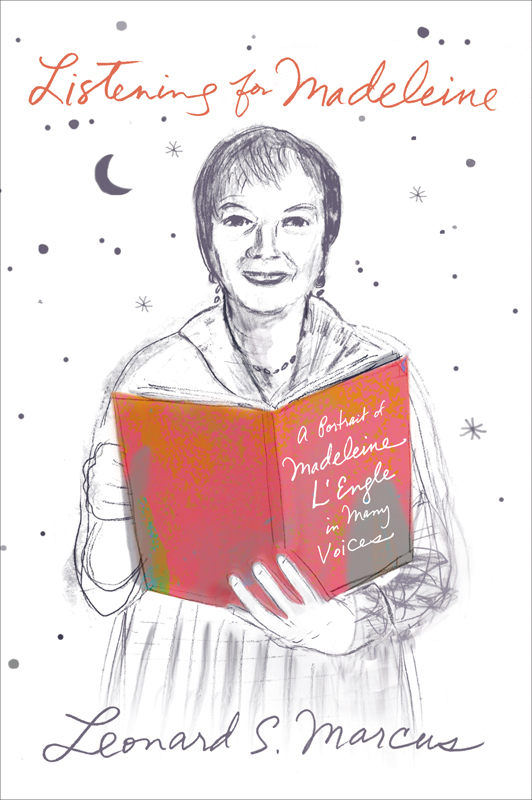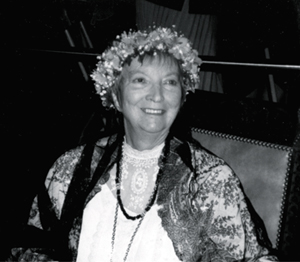
MADELEINE LENGLE AT HER SEVENTIETH BIRTHDAY CELEBRATION, 1988
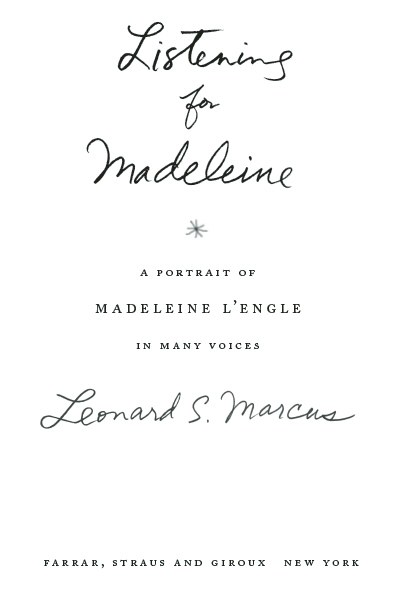
The author and publisher have provided this e-book to you for your personal use only. You may not make this e-book publicly available in any way. Copyright infringement is against the law. If you believe the copy of this e-book you are reading infringes on the authors copyright, please notify the publisher at: us.macmillanusa.com/piracy.
To the memory
of my father, who said, Talk to people,
and
of my mother, who taught me to listen
CONTENTS
INTRODUCTION
For any reasonably self-reflective and intelligent individual in the modern age personal identity is not a birthright but a conquest. If we are successful it is because gradually we learn to tell ourselves a story about who we are that others can judge as in some sense true to the facts.
LAIRD M. EASTON, ED. , Journey to the Abyss: The Diaries of Count Harry Kessler, 18801918
I dont understand how and why I come to be only as I lose myself, but I know from long experience that this is so.
MADELEINE LENGLE , The Irrational Season
She was born in New York City on November 29, 1918, the only child of Charles Wadsworth Camp and Madeleine Hall Barnett Camp. Her parents, whom she ruefully described as Olympian, had both grown up in privileged circumstancesCharles at Hilton, a rambling old house in Crosswicks, New Jersey; Madeleine in Jacksonville, Florida, where her family owned the largest bank. Her parents lived an elegant if far from opulent beau monde life, with Charles, a Princeton man and veteran of World War I, plying his trade as a journalist and mystery writer, while the elder Madeleine, a classically trained pianist who shunned the professional limelight, looked after the family finances, a task for which she proved to be as well suited as any Barnett. The couple was married in 1906 in Jacksonville, Florida, where the brides family lived and Charless parents had taken to spending the winter. Charles, having cut his teeth out of college as a beat reporter for the New York Sun , worked for McClures and Metropolitan magazines and, for a time, traveled the world as a foreign correspondent while also dabbling in fiction. On at least one occasion, Madeleine Camp accompanied her husband on his far-flung adventures.
At home in New York, the Camps dressed for dinner, attended the theater and the opera, and entertained their friends in the arts. When in the eleventh year of their marriage their daughter was born following an unusually difficult pregnancy, the couple kept up their busy social schedule as before, with young Madeleine consigned to the care of an English nannythe salt-of-the-earth Mrs. O. (short for Mary OConnell) of Liverpool. A succession of boarding schools would later serve the same purpose of freeing the Camps to maintain their gilded routine.
Madeleines poor-little-not-quite-rich-girl status did have advantages. By the time she was ten, she had met George Gershwinand Gershwins mistress, the gifted musician and composer Kay Swiftand heard them play the piano in a school friends opulent drawing room; listened as members of the Metropolitan Opera Company sang for their friends in the Camps own parlor, accompanied by her mother; and frequented the galleriesa short walk from her parents East Eighty-second Street apartmentof the Metropolitan Museum of Art. Exposure to the arts spilled over into the summer months when, before she was old enough for sleepaway camp, her parents brought her along to the Cornish Art Colony, a popular New England retreat founded by the American sculptor Augustus Saint-Gaudens, whose dashing art-world-grandee son, Homer, had been a wartime comrade-in-arms of Charless. To a shy, ungainly, keenly observant young child, a steady diet of experiences such as these was more than enough to confirm the world of culture as the most desirable of realms, even if it did little to balance out the near-total lack of regular playmates or her overbusy parents serial lapses of attention. It was then that Madeleine learned to fill the emotional hollows in her life by seeking solace in books and, from the age of eight, by writing in the pages of a journal. Books, she decided, were more reliable companions than people. For decades afterward, LEngle would work feverishly to prove herself wrong about this.
She had a disastrous first experience of school. At her mothers insistence, the Camps enrolled Madeleine at Brearley, an academically rigorous private girls school catering to the cream of New York society, where her teachers pigeonholed her as at best an average student and she dreaded having to participate in athletics. When it became clear how unhappy she was there, her mother sympathized with her and, over Charless protestations, transferred her to the next of a series of city day schools. Then, in 1930, when Madeleine was eleven, the Camps left New York for France and took up residence in a picture-postcard alpine chteau as the guests of family friends. They did so ostensibly for the sake of Charless health but more likely to trim the familys expenses as the Great Depression made it harder for himnow a freelance writer with only modest success to show for his effortsto earn a living. When fall came, Madeleines parents, up to their old tricks, delivered their daughter without warning to a Swiss boarding school, introduced her to the matron in charge, said their goodbyes, and drove away. Madeleine remained there for the next three years. Reading and writing off the menu of the school curriculum once again sustained her amid the demands of a rigidly structured, insular world in which she did not feel appreciated. It was then, LEngle recalled, that she burnished her powers of concentration and mastered the ability to write anywhere, disciplines that afterward served her as a writer with young children at home and as a sought-after lecturer with a frenetic travel schedule.
After three years abroad, the Camps, having received the news that Madeleines maternal grandmother, Caroline Hallowes LEngle Barnett, of Jacksonville, had fallen ill, returned to the United States. Charles and his wife now settled in Jacksonville and arranged for Madeleine to enroll in Ashley Hall, a girls boarding school in Charleston, South Carolina. It must have astonished no one more than Madeleine herself that Ashley Hall suited her so perfectly. It was there that her formal education and her fugitive efforts to prepare herself for a writing career finally converged in an exhilarating blast of encouragement for her passion for literature. At Ashley Hall, she went so far as to question her harsh self-assessment as a socially and physically awkward girl, even mustering the courage to take on the lead role in school plays. Madeleine now added stage acting to reading and writing in the arsenal of her tried-and-true escape-and-rescue strategies. The prodigious internal growth she experienced at this time prepared her well for Smith College.
Madeleine was in her senior year at Ashley Hall when in October 1936 she received an urgent message concerning her fathers health. Days earlier, on a whirlwind visit up north, Charles Camp had looked hale and hearty to his old college friends at a Princeton reunion and to fellow members of New Yorks Players Club. But by the time he was home in Jacksonville, he had come down with a bad case of pneumonia, and his condition deteriorated with terrifying speed. Armed with a copy of Jane Eyre , Madeleine boarded a train bound for Florida but arrived too late to see her father alive one last time.


